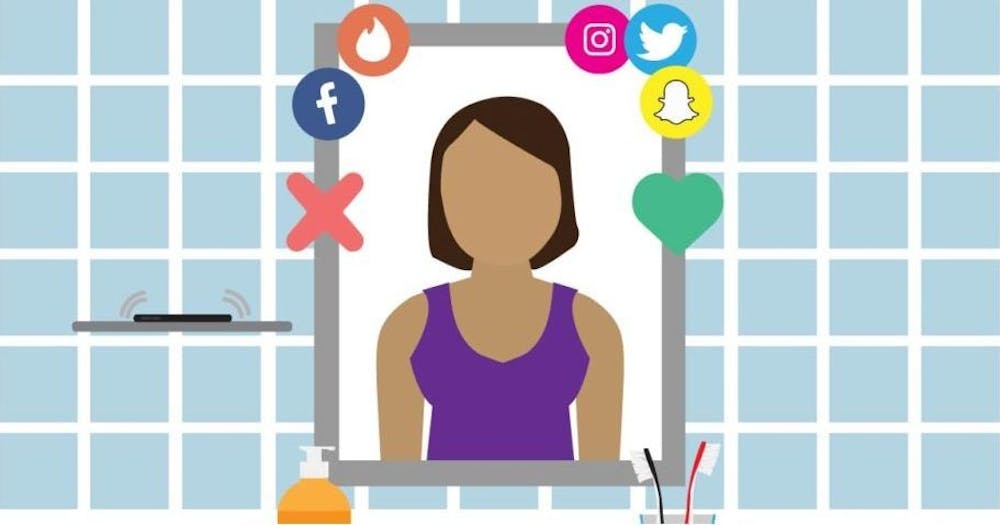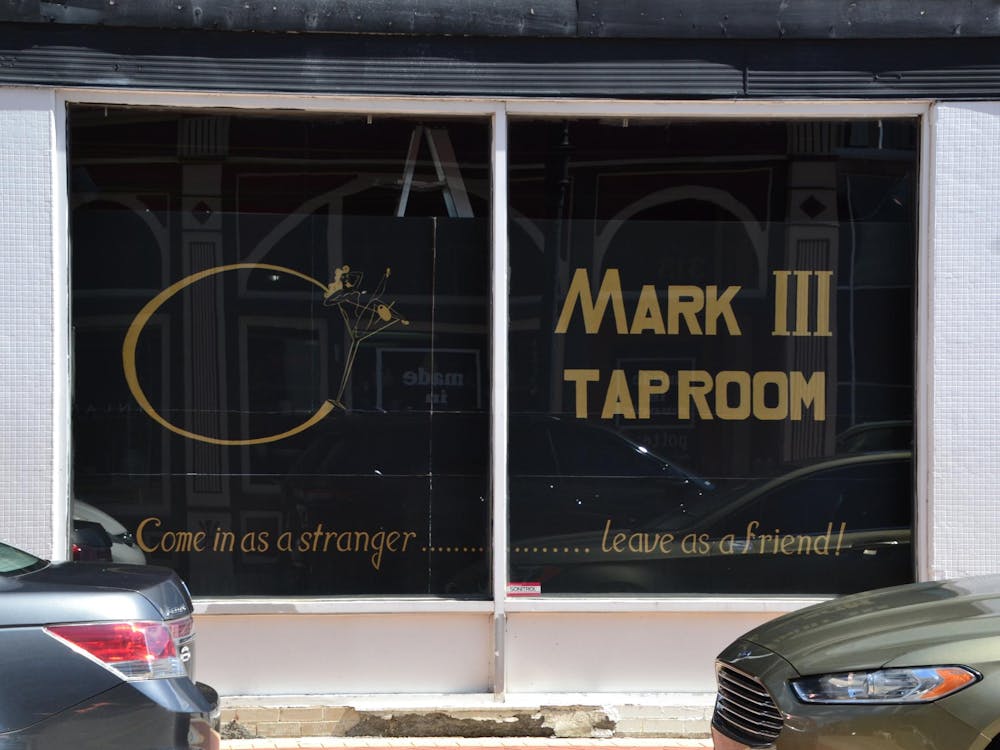Logan Dawson’s parents made Facebook profiles for one reason: They wanted to keep up with him while he studied abroad in Ireland after his first year of college. Before he left, Logan posted a picture of him and his parents, tagging their new profiles and thanking them for making the trip possible. It was like an online goodbye.
After Logan shared that post, his phone blew up with dozens of comments and likes. The positive reactions brought his parents pride. Logan wanted to make his parents feel good by showing appreciation, but he didn’t realize he would end up feeling better about himself.
Reactions to social media posts can affect self-worth. According to a study by Frontiers in Human Neuroscience, receiving a lot of likes or other good feedback on social media can affect the brain similarly to recreational drugs.
Feeling Accepted
Logan is a sophomore at Indiana State University. He uses a variety of social media, including Facebook, Twitter, Instagram, and Snapchat, but not as often or in the same way as he did in high school. Back then, he accepted every friend request he received on Facebook, even if he had never met that person before. With Twitter, he only followed people he knew, but was proud of the number of people following him.
In high school, he tweeted every day. Most of the time, his twitter activity involved posting things he thought were funny or would receive a positive reaction. Most of what he tweeted was directly at people in hopes of brightening their day or making them smile, because making them feel good made him feel good.
Elizabeth Peeler, a health educator at Ball State University, believes social media’s impact on how a person feels about himself or herself depends on the types of online interactions they have. And when social media causes a sense of pride, accomplishment, or even just a general good feeling, it can increase a person’s risk for social media addiction.
Positive reactions online seemed to improve Logan’s self-worth, but he also experienced some of the symptoms for addiction Peeler explained. During high school, he woke up and fell asleep to his Twitter feed—he was constantly wanting to check it and see how people reacted to his posts.
A Harvard University study found that self-disclosure stimulates the mesolimbic dopamine system, the part of the brain that registers pleasurable activities like eating. Stimulating this part of the brain increases motivation and incentive drive. So it makes sense that posting makes people happy.
But that isn’t always the case, Peeler says. Logan felt a sense of satisfaction by posting, which ended up increasing his self-esteem, but most teens experience something different. Peeler says that teens frequently compare themselves to others on their social media feeds, and those comparisons can often lead to negative feelings about oneself.
Self-Comparison Meets Social Media
Is there a pimple? No, there’s not a pimple. Do my teeth look white? Okay, they look white. These are the first thoughts that run through Brianna Oberson’s mind before she posts a picture of herself on social media. Even if she’s in a picture with friends or family, Brianna won’t post to social media if she has negative feelings about her appearance.
Brianna began disliking her appearance when she returned from a vacation to Puerto Rico a few years ago. When her mom picked her up at the airport, she noticed that Brianna had lost some weight.
“Oh, did you eat while you were there?” she asked jokingly.
“Not really,” Brianna admitted.
She never developed a taste for Cuban food during the trip, so she didn’t eat as much as she usually would. Once she got home, Brianna listened to her mom’s suggestion and weighed herself. She had lost twelve pounds in a week and a half.
After realizing how much weight she’d lost by not eating very much, Brianna started working out and counting calories. Since her trip in 2014, she has lost sixty pounds.
But it doesn’t feel like enough. She doesn’t feel like she looks good enough, even after losing that much weight. Brianna refuses to post full-body pictures online because of this.
According to an article by self-esteem expert Dr. Joe Rubino, 80 percent of female students said negative body images they have came from remarks by friends or family. While the comment Brianna’s mom made wasn’t negative, it made Brianna realize how her body had changed. She didn’t intend to lose weight, but when she realized she had, it felt good and she wanted to lose more.
Peeler thinks high school and college students struggle with the fear of not living up to expectations if they can’t get positive reactions on social media. Brianna gets positive reactions both online and face-to-face, but the fear of getting a negative reaction strongly affects what she posts online. Like Brianna, seven in ten teenage girls believe they aren’t good enough or aren’t measuring up in some way, according to a an article by Do Something.
Peeler says that social media can add to the stress and anxiety that college students feel. This comes from students constantly comparing their lives to the lives of their peers that they see on social media. Online, people typically only see the positive sides of someone’s life. Peeler believes students tend to forget that online posts are an edited version of reality, only showing someone’s best aspects of life.
College students who base their self-worth on what others think reported more feelings of stress and anger, according to research by psychologist Jennifer Crocker at the University of Michigan’s Institute for Social Research. These students also show higher levels of drug and alcohol use and are more likely to experience eating disorder symptoms.
Brianna doesn’t always stress about the number of likes a post gets, but she does notice them. Before posting a picture of her niece giving her a kiss, she thought people might see the picture as weird. But she posted it anyway because she liked the picture and wanted to share it with other family. Rather than letting her fears get the best of her, she decided to preserve the memory and not care about what others thought.
It’s Not Just for Kids
Stephanie Richkowski-Bennett hits the “post” button on Facebook, sharing pictures of her kids and grandkids, feeling happy that she can share her memories. For her, social media is a method of communicating with friends and family who are out of town—not a way to improve her self-worth.
Stephanie, age forty-nine, also posts to share things with other people she doesn’t see often. The number of likes her pictures or posts receive doesn’t matter to her. She’ll check the reaction her posts get, but only if she isn’t busy with other things.
According to Pew Research, the number of adults ages thirty to forty-nine who use social media is just 3 percent lower than teenagers ages thirteen to eighteen. But Peeler thinks that even though the number of adults and teens who use social media is close, adults don’t experience the same impact on their self-esteem because they typically don’t compare themselves to what they see online.
This is because adults developed their self-worth before being exposed to social media, says Peeler. Most social media developed alongside Millennials, so their experiences have been documented on it during the most vulnerable points in their lives.
According to Digital Trends, Myspace was founded in 2003. It was geared toward young adults by offering a more trendy site than earlier social networking sites. Stephanie, and other middle-aged adults, were already adults when Myspace and the social media trend started. Because of this, it makes sense that social media would affect younger individuals’ self-worth more than that of an older adult.
More specifically, Peeler says their self-esteem isn’t affected in the same way that teenagers are because they had time to develop their sense of self outside social media. Generally, middle aged adults don’t self-compare the posts they see on social media the way teenagers and young adults do.
Stephanie’s self-esteem isn’t decided by Facebook. She might post things asking for opinions, but the feedback she receives doesn’t lead her to question her self-worth.
Peeler believes anyone can be affected positively or negatively by the reactions they get on social media. It really just depends on how they use it.





